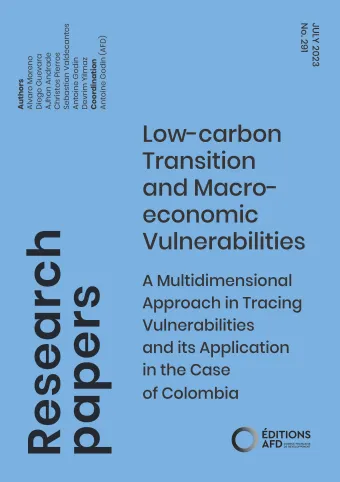Share the page
Low-carbon Transition and Macroeconomic Vulnerabilities: A Multidimensional Approach in Tracing Vulnerabilities and its Application in the Case of Colombia
Published on

The transition to a low-carbon and climate resilient economy is a process of heavy restructuring of the productive network, during which sunset industries are in decline or even disappear, while sunrise industries emerge and flourish. This process affects all aspects of the economy: the demand and the supply side, the public and the private sector, the financial structure and the informal economy. In this paper, we propose a holistic framework that assesses the macroeconomic vulnerability that emerges from a low-carbon transition, especially in developing economies. We consider vulnerability as a multidimensional phenomenon and, thus, pay attention to all fiscal, social, monetary, financial and external dimensions of the economy. We, then apply this framework to the Colombian economy. We use indicative variables of vulnerability, in all its aspects, and a stock-flow consistent growth model in order to monitor their evolution across time. We consider two scenarios related to a reduction of real fossil fuel exports of Colombia and a global rise in the interest rates. Results indicate that the more delayed is the global transition, the higher the vulnerability of the Colombian economy. Similarly, global monetary tightening becomes an obstacle in the transition process, as it induces vulnerability stemming from the financial and external side of the economy.
Useful Information
-
Authors
-
Alvaro MORENO, Diego GUEVARA, Jhan ANDRADE, Christos PIERROS, Sebastian VALDECANTOS, Devrim YILMAZ, Antoine GODIN
-
Coordinators
-
Edition
-
291
-
Number of pages
-
38
-
ISSN
-
2492 - 2846
-
Collection
-
Research Papers
